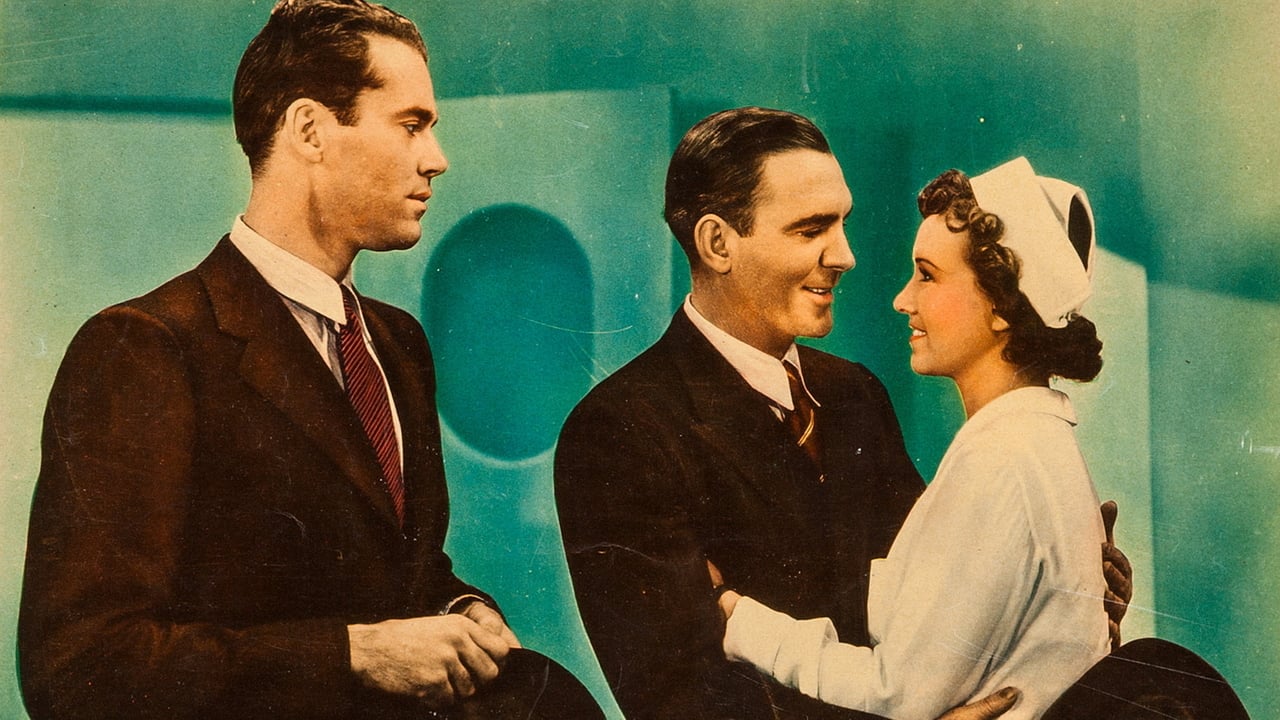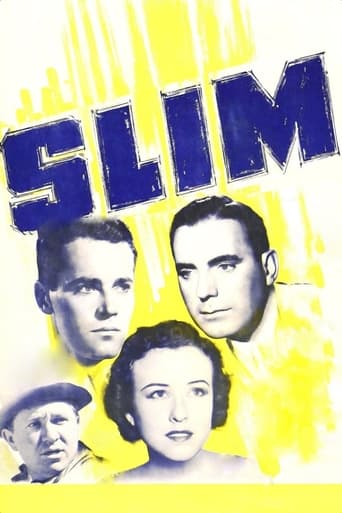Jeanskynebu
the audience applauded
BlazeLime
Strong and Moving!
Brennan Camacho
Mostly, the movie is committed to the value of a good time.
Matho
The biggest problem with this movie is it’s a little better than you think it might be, which somehow makes it worse. As in, it takes itself a bit too seriously, which makes most of the movie feel kind of dull.
Martha Wilcox
This is a poorly written, directed and acted film, although there are some good camera shots when the characters are climbing up the electrical pole. It has shades of 'Manpower' with Edward G. Robinson about it, but neither film provides any engaging characters or compelling storyline. The film is pedestrian and just plods along at a snail's pace throughout. We don't care about the characters or the situations they are in. I don't know how this got made, but it is a poor excuse for a film that only adds to Henry Fonda's credits. I don't believe him as a tough man, although you do see scars on his face when he gets into a brawl. He is youthful looking and naive, but there is nothing else to commend this film.
lorenellroy
Warner Brothers did this kind of taut,tart blue collar movie better than any other studio and while Slim is not the studio at its absolute peak of performance it is a pretty good piece of lean and crisp movie making .Slim -played with conviction by Henry Fonda -is a farm boy who yearns to work as a lineman on the big electrical projects then going ahead , under the auspices of the New Deal ,The opening sequence indeed is a quasi-documentary complete with solemn and sententious narrative that is a virtual commercial for Mr Roosevelt's public works agenda and which loudly hymns the role of the electrical industry in modern life He badgers Pop Travers (J Farrell MacDonald)to give him a trial and he is taken under the wing of the most respected of the lineman ,Red(Pat O'Brien).They become friends as well as mentor and protégé ,a factor cemented when Slim comes to Red's rescue as he is being fleeced by a crooked card sharp.They become partners and Red introduces Slim to his girlfriend ,a nurse Cathy (Margaret Lindsay)who is despairing of Red's nomadic lifestyle and longs to see him settle down to domesticity..Gradually a relationship develops between Slim and Cathy .The movie builds to a climax on a job site during a major blizzard .The movie is well acted and Ray Enright brings forthright energy to its direction .Special mention to Stewrat Erwin as the garrulous Stumpy -a veteran ground worker on the sites and to Jane Wyman making an early appearance as his girlfriend This is efficient and unpretentious studio film making at very n ear its best
tdemos
It's easy to see why this was one of Henry Fonda's favorite roles. I personally think there is more action and entertainment packed into this one short film than the award winning "Grapes of Wrath", filmed with Fonda just a few years later.Fine acting performances all around take the viewer into the waning years of the Great Depression with an authenticity of characters, time, and place. The cinematography and the period details are simply fantastic.Add to all of this the pure poetry of the dialog exchanges between many of the characters. It's as lyrical as anything written by Shakespeare. The character "Stumpy" for instance begins almost every sentence with either a variation on a song "Mother said to Mabel"... or his own unique way of expressing himself. "You think that old Stump boy would...".Even the often quoted phrase of Slim "That's what's the matter." rings true as heroic in every sense for our protagonist.Also, it is of great interest to see how people were treated in the workplace back in this era. Can you imagine your boss literally kicking you in your rear end when he thought you were slacking off or distracted? This was a time when men were desperate for jobs and there was no OSHA, EEOC, or sympathetic human resources director. After seeing this nostalgic view, one is almost tempted to wonder what it would like to give your contemporary office co-workers a sharp kick in the rear when they slump off during the a project or show up for work late.Accurately depicted in the movie... During the 1930's if you messed up at work because you were drunk the night before, you were simply fired. That's it, pick up your last check and hit the road! If a man was killed or injured in an industrial accident, he was simply replaced with minimal fuss and ceremony. It may sound cruel by today's standards, but it served a purpose back then.So fine is this movie that I must further elaborate on the cinematography and the set decoration. Where else do you get actual 150 foot steel electrical towers under construction filmed with racing steam engine trains in the background highballing along the right-of-way? Under the expert direction of Ray Enright, the viewer actually imagines the feeling of the bone-chilling cold depicted outside the boarding house where the linemen crew is housed. One can almost taste Stumpy's "eating potatoes" on the table. If you are old enough, you remember that there once were women who behaved exactly like the lady who plays the boarding house manager. A masterful performance.The hotwire substation at 88000 volts is the scariest set since Dr. Frankenstein's laboratory. Don't miss it. A must see!
pae-sk
Running a mere 80 minutes, this little treasure packs in more action and character development than you're likely to find in some of Sly's and Arnold's big-budget blockbusters. A personal favorite of Fonda's, it's the story of a farmer's young son (he even plows the family's 40 acres behind a mule!) who leaves the farm to join a gang of linemen doing the grand task of electrifying rural America during the Great Depression. It's hard to believe, but historical fact, that prior to WWII, 75% of all Americans lived on the farm without electric power. Taken under the wing of mentor Red Blayde (Pat O'Brien), the boy Slim (Fonda) learns about life and love, honor and betrayal, and most of all, the nobility of a man's work, in the days when work itself was regarded as a higher value than just the pay check it brought in. Little moments stand out: Slim lighting up his first nickel cheroot; writing his Mom a letter home and including a $5 bill; leaning back in the passenger seat of Red's convertible as they ride down Chicago's Michigan Avenue, looking up in awe and sheer joy at his first glimpse of a big city. "Take a good look," says Red, "there's only two other cities like it in the country!" Rounding out the cast are Stu Erwin as Stumpy, the lazy and comical ground worker; Joe Sawyer, the "lyin' goldbrikkuh;" a glamorous Jane Wyman as Red's girl; always cheerful Margaret Lyndsey as the nurse who takes a shine to Slim; and stalwart John Littel as the company boss. From a top-notch novel (1934) by William Wister Haines, author of "High Tension," "Command Decision," "The Hon. Rocky Slade," and many others. Ten out of ten.

